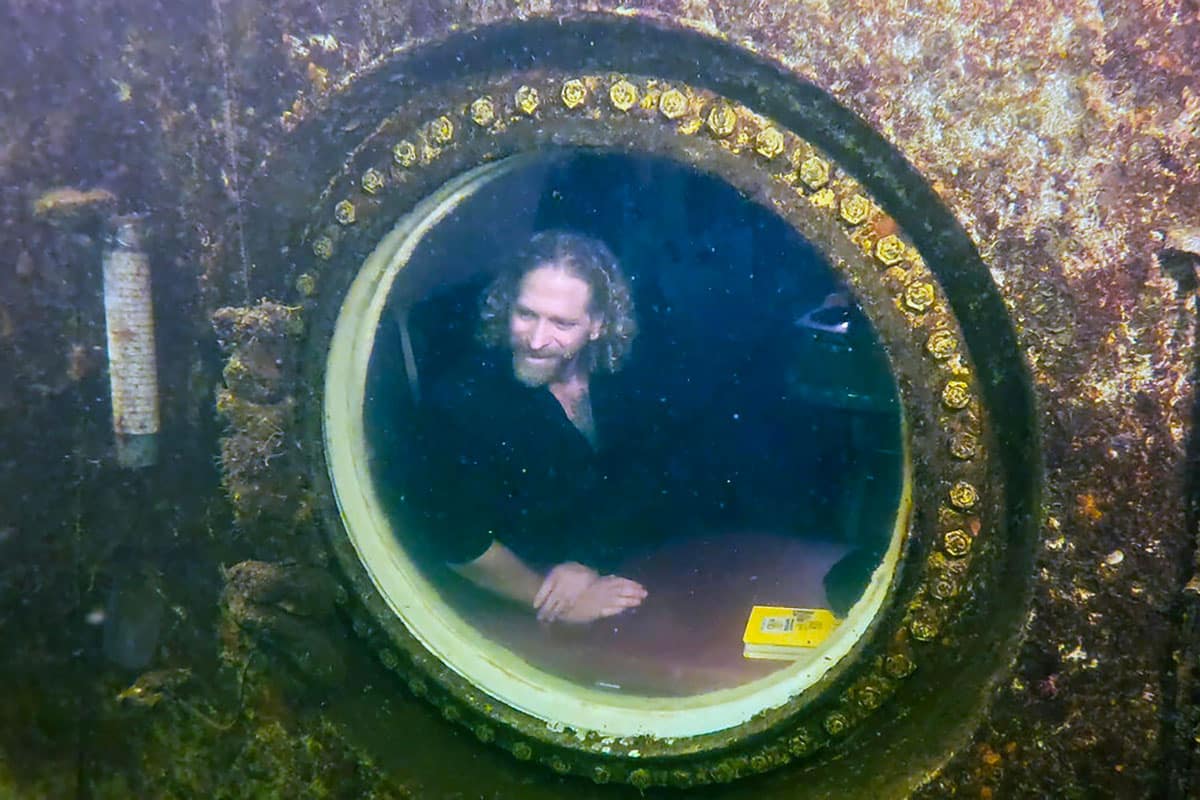In a remarkable feat of human endurance and scientific dedication, Dr. Joseph Dituri, affectionately known as “Dr. Deep Sea,” has shattered the world record for the longest time spent living underwater. This groundbreaking achievement not only pushes the boundaries of human capability but also opens new horizons for marine research and exploration.
An American researcher breaks the world record for living underwater… but doesn’t want to resurface

Dr. Dituri, a retired U.S. Navy officer and professor at the University of South Florida (USF), embarked on an extraordinary journey dubbed "Project Neptune 100." His mission : to spend 100 days submerged at a depth of nearly 10 meters without decompression. This ambitious undertaking aims to study the physiological and psychological effects of prolonged compression on the human body.
The underwater residence chosen for this experiment is none other than the Jules Undersea Lodge, a unique hotel in Key Largo, Florida. Here, guests must dive to reach their rooms, making it the perfect setting for Dr. Dituri's groundbreaking research. After 74 days of continuous submersion, he officially surpassed the previous record of 73 days, 2 hours, and 34 minutes, set by Tennessee professors Bruce Cantrell and Jessica Fain.
While breaking the record is a significant milestone, Dr. Dituri remains focused on the scientific goals of his mission. "The record is a nice bonus, and I truly appreciate it. I'm honored to have it, but we still have more scientific work to do," he stated. His commitment to marine conservation and research echoes the importance of understanding the delicate balance between human innovation and environmental impact.
Life beneath the waves : A day in the deep
Dr. Dituri's underwater routine is as rigorous as it is fascinating. His daily schedule includes :
- Conducting scientific experiments
- Consuming protein-rich meals, primarily salmon and eggs
- Engaging in physical exercises like push-ups and resistance band training
- Taking hourly naps to maintain mental acuity
- Teaching online classes to over 2,500 students on marine sciences
This structured approach allows him to maximize his time underwater while maintaining his health and contributing to scientific knowledge. The use of a microwave for meal preparation highlights the innovative solutions required for long-term underwater living.
Despite his enthusiasm for the underwater environment, Dr. Dituri admits to missing the sun. This sentiment underscores the psychological challenges of extended submersion, akin to those faced by astronauts in space. The parallels between underwater and space exploration are striking, both pushing the limits of human adaptation and resilience.
The scientific impact and future implications
Dr. Dituri's experiments are shedding light on the long-term effects of extreme pressure on the human body. This research could have far-reaching implications for various fields, including :
| Field | Potential Applications |
|---|---|
| Deep-sea exploration | Improved safety protocols for divers |
| Marine conservation | Enhanced understanding of underwater ecosystems |
| Medical research | New insights into pressure-related health conditions |
The ambitious goal of "populating the world's oceans" through this experience reflects a vision of sustainable coexistence with marine environments. By living underwater and treating the oceans "really well," Dr. Dituri hopes to inspire a new generation of marine scientists and conservationists.
This underwater odyssey draws interesting parallels to other extreme environment studies. For instance, bed rest studies simulating microgravity conditions offer similar insights into human physiology under unusual circumstances. Both types of research contribute valuable data to our understanding of human adaptability and resilience.
Beyond the record : A legacy in the making
As Dr. Dituri approaches his target of 100 days underwater, set to conclude on June 9, 2023, the scientific community eagerly anticipates the wealth of data and insights his experience will yield. His dedication to marine education, evidenced by the thousands of students he has taught from his subaquatic classroom, promises to inspire future generations of ocean explorers and conservationists.
The success of Project Neptune 100 not only sets a new benchmark for human endurance but also highlights the vast potential for underwater habitation and research. As we continue to explore the depths of our oceans, Dr. Dituri's pioneering spirit and scientific rigor pave the way for a deeper understanding of our blue planet and our place within it.


